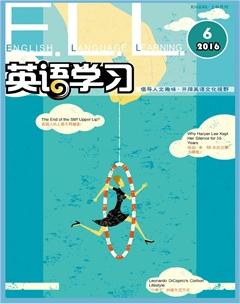何谓“完满的一生”?
The Changing Definition of a “Full Life”
There are two types of death: the kind that comes too soon, and the kind that, though lamentable1, at least feels age-appropriate. When someone young passes away, the blow is made worse by all the might-have-beens—what the deceased could have done,2 seen, and accomplished if only given more time. When the very old die, however, the loss—while still terrible for their loved ones—doesnt come with that same sense of unfulfilled3 potential. “It was his time” is the phrase that so often applies, or, “She lived a full life.”
But the definition of “a full life” is expanding, and the line dividing the two types of death is retreating4. Not too long ago, a person who lived until age 70 was considered to have had a good, long run. Newspapers from the early-to-mid 20th century typically treated such deaths as wholly unexceptional5. The 1910 Los Angeles Herald, for example, reported that the stage actor Louis James had “died recently at the ripe old age of 68 years.”6 In 1899, the Little Falls Herald noted that a woman named Mary Honohan, of Brainerd, Minnesota, “died of old age at the hospital Friday, aged 70.” A reporter at the Corpus Christi Times wrote of a Soviet diplomat in 1954: “The amazing thing about Andrei Yanuarevitch Vishinsky is that he lived so long and died a natural death at the ripe old age of 70.”
Its hard to pinpoint7 exactly when 70 stopped being an acceptable age for a lifetime to end. Certainly, some of it had to do with gradually lengthening life expectancies8. In 1900, the average 50-year-old could expect to make it to 71; today, he or she will live more than a decade longer than that. But as the definition of a long life changes, so do ideas about what people can achieve in the years once written off9 as “old age.” Consider the recent death of David Bowie at 69: Fans mourned the loss of the person, but also the loss of his future output.10
At other times in history, placing such weight on the creative potential of a 69-year-old would have seemed the height of folly.11 In 1905, for instance, Sigmund Freud12 wrote that those “near or over the age of 50…are no longer educable.” (He was 49 at the time.) In 1937, President Franklin Delano Roosevelt said in one of his Fireside Chats that U.S. Supreme Court justices older than 70 represented a “hardening of the judicial arteries.”13
Thats not to say that notable figures who died in their late 60s went unmourned.14 When a physically robust George Washington succumbed suddenly at 67 to what was probably bacterial epiglottitis (and the unfortunate medical practice of bloodletting), a young nation reeled, and remembered his “well spent life,” as Major General Henry Lee said in Washingtons eulogy.15
Something similar happened when Bowie died at 69, of course—reminiscences and retrospectives on his career quickly became too numerous to count.16 But there was an added element. People mourned George Washington at 67 because of the great things hed done. People mourned Bowie at 69 for that reason, certainly, but also for everything he had yet to do.17 Leading up to his death, he went through what critics have described as “an 18-month burst of creativity.” Just as important, he had the support of a music industry willing to bet on his continued ability to churn out cutting-edge work.18
Still, outdated assumptions about the capabilities of older people remain common today. As Mark Zuckerberg19 famously said in 2007, “Young people are just smarter.” And in a 2014 Atlantic cover story, the physician and public intellectual Ezekiel Emmanuel said he wouldnt personally seek aggressive treatment for disease after age 75.20 “By the time I reach 75, I will have lived a complete life,” he writes. “I will have pursued my lifes projects and made whatever contributions, important or not, I am going to make.”
Thats his choice to make, and although he says it shouldnt be confused for policy advice, the implication21 is still clear: There is a line separating the time in your life when you can contribute and when youre done. Its the same line distinguishing the deaths of the young from those who “lived full lives.”
The headlines, though, are full of counterarguments22 to that line. Had Jimmy Carter taken the same pledge as Emmanuel, for example, he certainly wouldnt be nearing victory over guinea worm, as he is today in his early 90s, despite a diagnosis of metastatic melanoma.23 And, of course, theres Blackstar, David Bowies most recent album, which was released shortly before his death and debuted as Billboards top-selling album24—helped, no doubt, by tragic timing, but also by the simple fact that it is very good. As life expectancies continue to change, so too will our collective ideas about death and its timing—not just for geniuses who write generation-defining anthems25, but also the rest of us who still have unfinished business of our own.
1. lamentable: 令人惋惜的。
2. might-have-been: 本来可以发生的事,未遂心愿的事;the deceased: 逝者。
3. unfulfilled: 未实现的,未达成的。
4. retreat: 后退。
5. unexceptional: 普通的,平常的。
6. herald: 用在报纸名称中时表示“……先驱报”; ripe old age: 高龄。
7. pinpoint: 准确说明。
8. life expectancy: 预期寿命。
9. write off: 放弃,认为……不重要(或失败)。
10. David Bowie: 大卫·鲍威(1947—2016),英国著名摇滚明星,2016年初因癌症去世;mourn: 哀痛,惋惜; output: (文艺)作品。
11. 在过去,期待一个69岁高龄的人还能发挥创作潜能似乎愚蠢至极。the height of folly: 愚蠢至极。
12. Sigmund Freud: 西格蒙德·弗洛伊德(1856—1939),奥地利精神分析学家。
13. 1937年,美国前总统富兰克林·德拉诺·罗斯福在一次炉边谈话中指出,在美国最高法院,70岁以上的法官就会显现出“司法动脉硬化”(此处形容公正司法的能力减退)。Franklin Delano Roosevelt: 富兰克林·德拉诺·罗斯福(1882—1945),史称“小罗斯福”,美国第32任总统;Fireside Chat: 炉边谈话,指罗斯福在电台中就国家问题进行的非正式谈话;Supreme Court: 最高法院;justice: 法官;hardening: 硬化;judicial: 法官的,司法的;artery: 动脉。
14. notable: 著名的;unmourned: 无人哀悼的,不令人痛惜的。
15. 当身体强壮的乔治·华盛顿67岁时突然死于可能是细菌引起的会厌炎(以及不恰当的放血治疗)时,这个年轻的国家陷入震惊之中,并永远记住了他“完满的一生”,正如少将亨利·李在他的悼词中说的那样。robust: 强健的;George Washington: 乔治·华盛顿(1732—1799),美国首任总统;succumb to: 死于……;bacterial: 细菌引起的;epiglottitis: 会厌炎;unfortunate: 不合适的,不恰当的;bloodletting: 放血;reel: 感到震惊;Major General: 少将;eulogy: 悼词。
16. reminiscences: [复数]回忆录; retrospective:(艺术家的)作品回顾展;numerous: 数不胜数的。
17. have yet to do: 未做。
18. bet on: 以……为赌注;churn out: 大量炮制;cutting-edge: 最前沿的。
19. Mark Zuckerberg: 马克·扎克伯格,社交网站Facebook的创始人。
20. Atlantic: 《大西洋月刊》,美国一本有关文学、政治、科学与艺术的杂志;physician: 内科医师;aggressive treatment: 积极治疗。
21. implication: 暗指,暗示。
22. counterargument: 辩驳,反驳的论点。
23. Jimmy Carter: 吉米·卡特(1924— ), 美国第39任总统;pledge: 承诺,誓言;guinea worm: 麦地那龙线虫病(吉米·卡特于1982年建立卡特中心,致力于消除麦地那龙线虫病等寄生虫病);diagnosis: 诊断;metastatic:(癌细胞)转移性的;melanoma:(恶性)黑素瘤。
24. album: 唱片集;release: 发行;debut: 首次公开,初次推出;Billboard:《公告牌》,是创办于1894年的美国音乐杂志,内容涵盖多种类型的音乐排行榜单。
25. anthem: 圣歌,颂歌。

